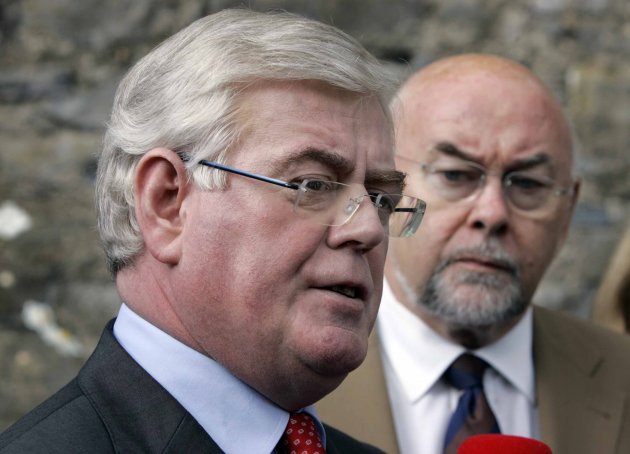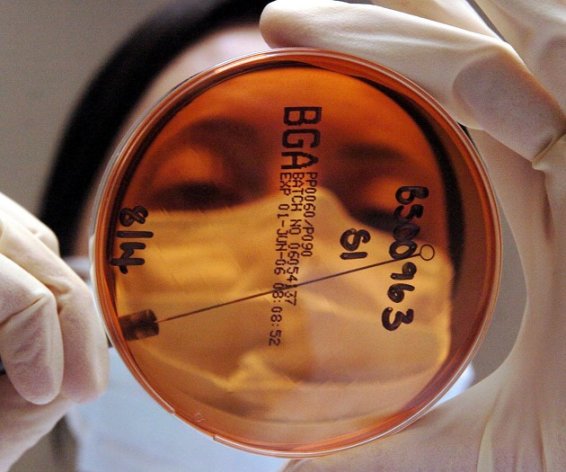Winning back the Irish public’s trust is a must and a priority


The public outpouring of self-pity by Irish politicians especially Ministers during the Christmas and New Year holidays would make you think that it’s a hard life being a TD,
We agree that the hours are long and the workload very heavy. But with a start-off salary of €92,000 per year for TDs, a ministerial salary of €169,000 per year, and a lavish system of expenses even after the reductions announced in December’s Budget, clearly the financial rewards are good.
In fact, they are amongst the best in the world. Nobody is forced to be a politician. We do it out of choice. Many of us do it out of conviction. And we enjoy our work.
Yet, following the debate through December and now in January, it seemed as though our politicians – particularly those in Government – were the victims of a massive smear campaign by a motley crew of anti-political journalists and abusive social media trolls.
Minister for Communications Pat Rabbitte has been hogging the limelight in this regard and went so far as to say that all of this negativity was undermining politics itself. What rubbish!
There is no doubt that public trust in politicians and the political process is at a low ebb. But to suggest that this is down to media criticism or negative tweeting is not just nonsense, it is a cynical attempt by some politicians to shift the blame for the problem on to others.
So what is the cause of the growing public mistrust of our political class and the political process?
Back in 2010, public anger was focused on Fianna Fáil. People had come to realise that the governments of Bertie Ahern and Brian Cowen were driven by political corruption and economic incompetence.
In the 2011 general election they voted overwhelming for change.
While nobody expected the problems created by politicians such as Mícheál Martin, Willie O’Dea, Billy Kelleher and Michael McGrath to be fixed overnight, they did believe that the cause of the problem – Fianna Fáil – had been surgically removed from the body politic and a long, slow recovery could now begin and try to win back the confidence of the Irish public.
Fine Gael and Labour promised to be different. The described their election as a democratic revolution. The old ways were to be replaced by a new era of honesty, openness, fairness and reform, they said.
Two years into office and the hope that was created in the days and weeks after February 2011 is now being replaced by a slow, burning anger.
People are not angry because the problems created by Fianna Fáil persist.
They are angry because Fine Gael and Labour have failed to deliver on key election promises and the programme for Government commitments.
Both parties included a clear commitment in the election manifestos not to introduce a Property Tax.
Labour said that Child Benefit was a red line issue and that Fine Gael should back off.
Yet two years into government and these promises (to name just two) have been broken and they pass the blame for new taxes and austerity on the EU Commission.
The electorate feel lied to and cheated. That is why they are angry with the Government.
They are also angry because over-paid politicians continue to live on lavish salaries and expenses while imposing real financial hardship on people who simply have no more to give.
And so – having been burnt so badly and for so long by Fianna Fáil and now by Fine Gael and Labour – the public are increasingly of the view that the problem lies not with individual politicians or parties but with the political class itself and the political system we inhabit.
Pat Rabbitte is right when he says that politics has been demeaned – but it is he and his colleagues in the Fine Gael and Labour Government who are primarily responsible for this, along with their Fianna Fáil mirror image.
So what is to be done? Can the public’s trust in politicians and politics be restored?
The straight answer is YES, but only if politicians act to earn that trust.
Politicians need to stop blaming others for problems they created.
They need to stop breaking the promises they make during elections and abandoning commitments made in their Government programmes.
They also need to stop paying themselves bloated salaries and expenses.
These simple steps would do much to restore public trust in politicians and the political process. They could be implemented starting from today.
And then we could get on with the more substantive debate about how best to repair the damage done by Fianna Fáil and rebuild our broken society and economy.
In politics, talk is cheap. It is deeds that matter. So let’s stop with the self-pity, let’s take a little responsibility and let’s start to show some real leadership.
If the political class were to do this, public opinion (and indeed the media) would not be slow to respond positively.
Irish banking mortgage approvals increase by 25%


Mortgage approvals were 25 per cent higher in November 2012 than in the same month the previous year, according to Irish Banking Federation figures.
Surveyed lenders approved a total of 2,010 mortgages in November, to the value of €346 million, the IBF Mortgage Approvals report found.
This figure represents an 8.6 per cent increase on the previous month.
Of that figure, some 94 per cent for property purchase, which itself showed a year-on-year increase of 35.4 per cent. The balance of approvals was for re-mortgages and top ups.
The IBF deems a mortgage approval a “firm offer” to a customer of a credit facility secured on a specific residential property, but the sum is not necessarily drawn down.
“The second month of data in this new series confirms continued growth in the number of new mortgages approved by mainstream lenders,” an IBF spokesman said.
Irish students urged to take part in“Beat the Blues” A Mental Health initiative


Secondary school students across the country are being urged to take part in Aware’s Mental Health Programme “Beat the Blues”.
The initiative, which was officially launched today, has already been undertaken by over 18,000 students in the last four months.
Devised by Aware, and funded by the Tesco Charity of the Year scheme, the programme focuses on positive mental health and how to deal with challenges in life – as well as building strength and resilience for the future.
Aware Clinical Director Dr. Claire Hayes said that feedback on the programme has been very positive:
Food safety authority Ireland serve up record levels of food firm penalties


Irish health inspectors were forced to take action against a record number of food businesses last year over risky food safety practices.
There was a 30pc increase in enforcement actions served on restaurants, grocery shops, wholesalers and other food businesses in 2012, the Food Safety Authority of Ireland said.
A record 109 premises were served with enforcement orders, up from 84 in 2011, making last year the highest to date for such actions.
This included 91 closure orders, which are served when there is deemed likely to be a “grave and immediate danger to public health at or in the premises”.
This was up from 66 closure orders the previous year.
Another 15 businesses were served with prohibition orders, which ban the sale of a particular batch of food because it poses a serious risk to public health.
FSAI chief executive Alan Reilly said the tally was extremely disappointing.
‘Substantial’ “Compared to 2011 we saw a substantial increase in the number of enforcement orders served last year, making 2012 the highest year for enforcements to date,” he said.
Seven businesses were served with closure orders during December alone.
These included the Cumann Baire Setanta Teoranta Hurling and Camogie Club public house, on the Ballymun Road in Dublin.
May Kearneys, on Lifford Road in Ennis, Co Clare, was also served with a closure order applying to its ground-floor kitchen and food preparation area but not its bar service area.
The Pesce Grande takeaway’s food preparation kitchen on Main Street, Aughrim, Co Wicklow, was served with a closure order that was lifted within days when the problems were sorted out, as was Mitsuba Ltd restaurant, at 154 Parnell Street in Dublin.
Dynasty Chinese Restaurant and takeaway, at Unit 9, College View, Ballymun Road, Dublin, was also served with a closure and a prohibition order on the sale of lasange, coleslaw, egg salad and cooked rice, but these were both lifted quickly.
The Anner Hotel, Dublin Road, Thurles, Co Tipperary, was served with a closure order on December 1 requiring it to cease using its current water supply but this was lifted a few days later.
Golden Mill Chinese restaurant, Sarsfield Street, Kilmallock, Limerick, was fined €3,000 for breaches of EU food hygiene regulations in 2012.
Irish public urged to check their blood pressure (hypertension)


Almost one in three adults who attended a national blood pressure roadshow organised by the Irish Heart Foundation (IHF) last year, were advised to see their GP about their results, the foundation has revealed.
High blood pressure, also known as hypertension, can cause silent damage to the blood vessels and heart, as there are few symptoms and the only way you can find out you have it is by having it measured. If left untreated, the damage progresses over time and can cause a range of problems, including atherosclerosis (hardening of the arteries), stroke and heart failure.
Last September and October, the IHF’s roadshow, ‘Down with Blood Pressure’ travelled the country and almost 4,500 adults had their blood pressure checked, ranging in age from 30 to 69.
Of these, 30% were advised to attend their doctor because of a high blood pressure reading.
“Thanks to our nurses delivering free blood pressure checks all around the country, 1,200 adults have now been alerted that they may have hypertension, which they need to manage with their doctor using a combination of lifestyle changes and possibly medication,” explained IHF medical director, Dr Angie Brown.
She noted that as many as half of people with high blood pressure are unaware they have it.
“Because high blood pressure carries no symptoms, the only way to know you have it is to get it checked. This January, make a healthy start by having a blood pressure check with your doctor or at your local pharmacist and take positive steps to reduce your risk by being a healthy weight, being active and consuming less salt, less calories and less alcohol,” Dr Brown said.
Meanwhile, she reminded people that if they are prescribed blood pressure medication, this ‘works best in combination with lifestyle changes’.
For more information on blood pressure, speak to an IHF nurse on the foundation’s helpline at 1890 432 787.
9,000 Penguins reveal their secret hideout in the Antarctic


Scientists from the British Antarctic Survey and US colleagues discovered the colony of one metre tall penguins from satellite images.
A hidden 9,000-strong colony of emperor penguins has received its first human visitors.
Scientists from the British Antarctic Survey and US colleagues discovered the colony of one metre tall penguins from satellite images.
The birds’ toilet habits gave away their location, by leaving faecal stains on the ice.
Three experts from Belgium’s Princess Elisabeth Antarctica polar research station have now become the first people to visit and photograph the colony.
They travelled to the site on Antarctica’s Princess Ragnhild Coast in early December.
Expedition leader Alain Hubert said: “I knew from last year’s satellite study that there could potentially be an emperor colony east of Derwael ice rise.
“Because we were operating not far from this the satellite location, I decided to force the way and try to access this remote and unknown place.
“The surprise was even more than all I could have expected or dreamed about: I realised while counting the penguins that this was a very populated colony.
“It was almost midnight when we succeeded in finding a way down to the ice through crevasses and approached the first of five groups of more than a thousand individuals, three-quarters of which were chicks.
“This was an unforgettable moment.”
Mr Hubert had been studying ice loss some 50 kilometres from the colony at a remote site 250 kilometres from the Princess Elisabeth research station.
No comments:
Post a Comment